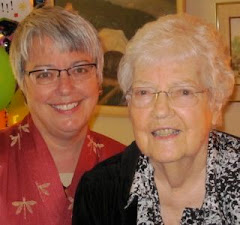My mother has repeatedly, yes even insufferably, talked about her desire to die. To have her life end.
I believe she feels this way out of boredom, because she chooses to sit and wait to die rather than embracing her remaining days. Vicious circle.
I think if she really understood that her pacemaker keeps her alive and her heart beating evenly - somewhat against her will in recent months - she may even want to deactivate it. (Removal is not necessary since it can be deactivated permanently or even temporarily with a big magnet.)
However - now I think about ethics questions. In my own mind, whether she is right or wrong to want to die, the pacemaker is artificially extending her life. The 'natural' state for her is to have a slowing heartbeat that eventually just stops. So in some sense if death is acceptable or desirable, then deactivating a pacemaker may be a 'natural' way to allow death to come when it comes. In visits with my sister she compares it to stopping taking one's medicine, and while I resisted that comparison at first, it probably does fit well.
Doing so seems uncomfortable to us, the living, but is what I would want if my situation were as desperate and hopeless as described in the family in the New York Times article.
Now the ethical quandary. My mother is very much alive and although she is bored, she has potential to live, to learn, to help others, to be a part of others' lives. I repeatedly urge her to 'live every day she is alive', as readers of this blog well know. Instead, it's Doctor Phil and waiting for Nancy. And endless same-ness of each day. Groundhog Day at age 90. I do all I can but cannot live life FOR her. I cannot turn a life of self-absorbed boredom into one of delight. I do make a difference for her daily in my visits of 20 minutes to 2 hours or more, but I cannot become the 'fun-ness' for her life.
So, I ponder, is it unethical for her to contemplate such actions to speed the natural end of her life? Is it unethical for me to describe to her the potential for her to take such an action, knowing that she may choose to take such a course even if I think it is a unnecessary (and possibly even immoral) waste of human life?
For the most part, I am her support and am there to facilitate her wishes. If her wishes are to speed death, then whether I would take that same decision or not, I tend to be willing to support her. But I know I can filter information that she receives. Where is the line drawn in controlling versus supporting?




No comments:
Post a Comment